Moderate Care Plants
Discover houseplants that require somewhat consistent care and specific conditions to thrive, perfect for plant enthusiasts with some experience.
Moderate Care Plants
Moderate care plants offer a rewarding middle ground between easy-care varieties and more demanding specimens. These plants require somewhat consistent attention and specific conditions, but reward your efforts with stunning foliage, interesting growth habits, or beautiful blooms.
About Moderate Care Plants
Moderate care plants typically have more specific needs than beginner-friendly varieties but are still adaptable enough for plant enthusiasts with some experience. These plants often come from tropical and subtropical regions where they've evolved to expect certain conditions.
Plants in this category typically:
- Need somewhat consistent watering schedules (not too wet, not too dry)
- Have more specific light requirements
- May benefit from higher humidity levels
- Might need seasonal care adjustments
- Often require specific soil types or regular fertilizing
While these plants need more attention than easy-care varieties, they're still forgiving enough that occasional lapses in care won't immediately lead to their demise. They're perfect for plant enthusiasts who enjoy a bit more involvement in their plant care routine.
Moderate Care Plants Collection
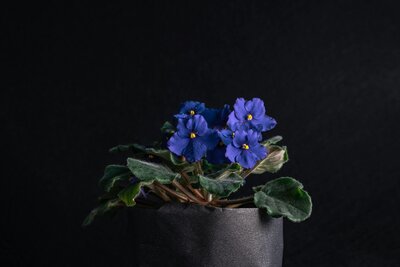
African Violet
Saintpaulia ionantha
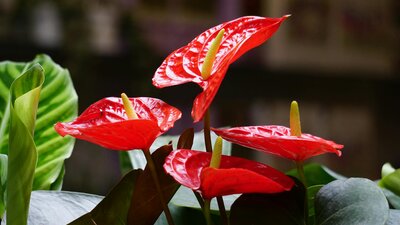
Anthurium
Anthurium andraeanum

Areca Palm
Dypsis lutescens
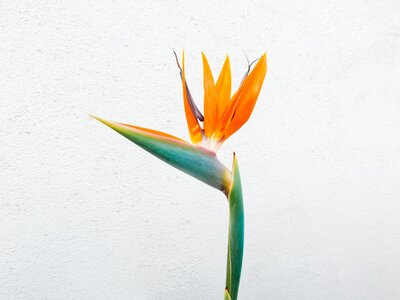
Bird of Paradise
Strelitzia nicolai
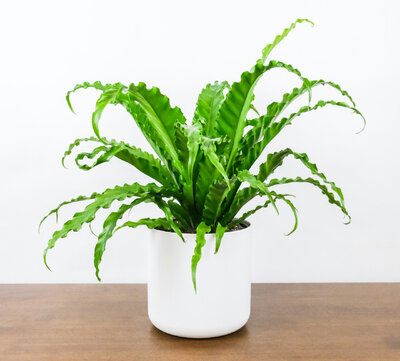
Bird's Nest Fern
Asplenium nidus
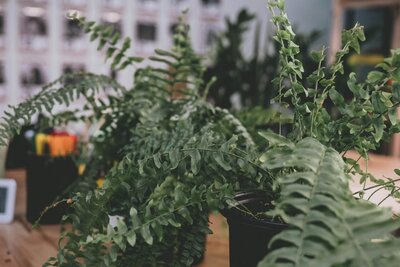
Boston Fern
Nephrolepis exaltata
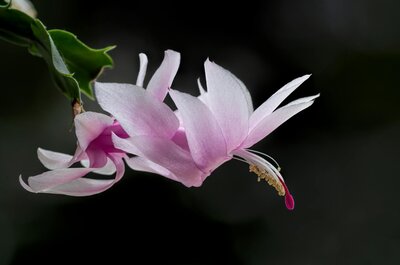
Christmas Cactus
Schlumbergera spp.
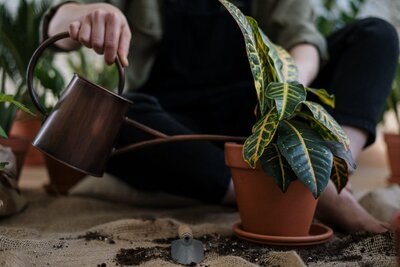
Croton
Codiaeum variegatum
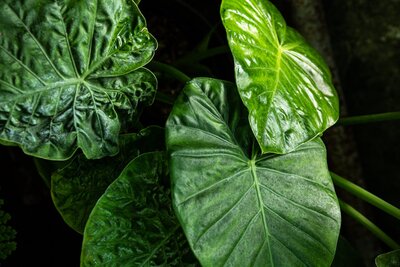
Elephant Ear
Alocasia spp.

English Ivy
Hedera helix
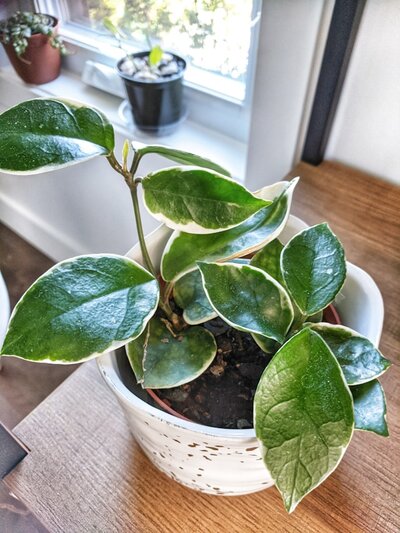
Hoya
Hoya spp.

Kentia Palm
Howea forsteriana

Monstera Adansonii
Monstera adansonii
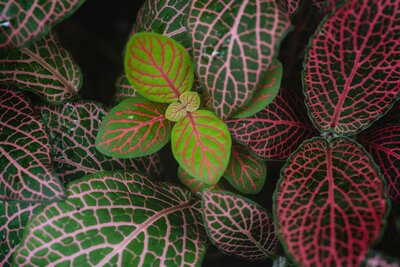
Nerve Plant
Fittonia albivenis
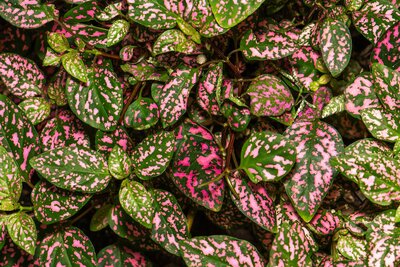
Polka Dot Plant
Hypoestes phyllostachya

Prayer Plant
Maranta leuconeura

Rattlesnake Plant
Calathea lancifolia
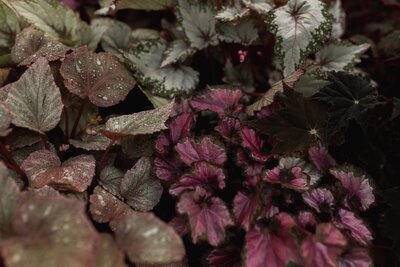
Rex Begonia
Begonia rex-cultorum
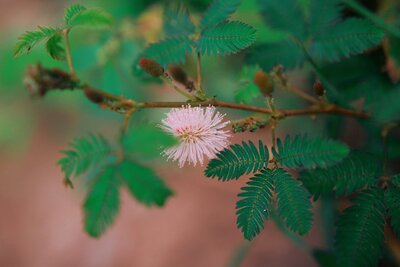
Sensitive Plant
Mimosa pudica
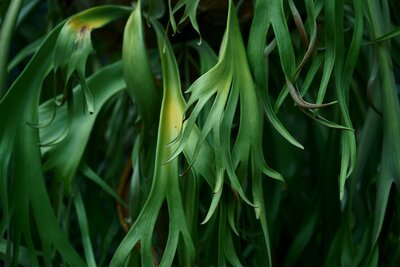
Staghorn Fern
Platycerium spp.

String of Hearts
Ceropegia woodii
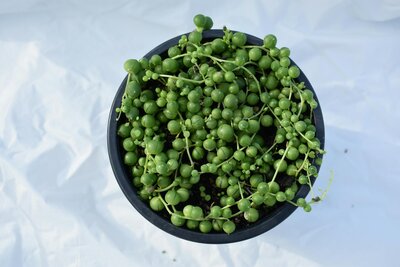
String of Pearls
Senecio rowleyanus
Moderate Care Plant Tips
Watering Balance
Finding the right watering balance is key for moderate care plants:
- Learn each plant's specific watering preferences rather than following a strict schedule
- Check soil moisture regularly - most moderate care plants prefer soil that's neither soggy nor bone dry
- Consider using a moisture meter if you're unsure about when to water
- Adjust watering frequency seasonally - most plants need less water in winter
- Use room temperature water, as cold water can shock sensitive root systems
Humidity Considerations
Many moderate care plants appreciate higher humidity than average homes provide:
- Group plants together to create a microclimate with higher humidity
- Use a humidifier near humidity-loving plants, especially during dry winter months
- Place plants on pebble trays filled with water (ensuring the pot doesn't sit in water)
- Consider placing higher-humidity plants in naturally humid areas like bathrooms or kitchens
- Mist plants occasionally if they benefit from it, though this provides only temporary humidity
Light Requirements
Understanding and providing proper light is crucial:
- Learn each plant's specific light needs - moderate care plants often have more precise requirements
- Rotate plants regularly to ensure even growth
- Be aware of seasonal light changes and adjust plant placement if needed
- Clean leaves regularly to maximize light absorption
- Consider supplemental grow lights during winter months if natural light is insufficient
Nutrition & Soil
Moderate care plants often need more attention to soil and fertilizer:
- Use appropriate soil mixes for specific plant types (e.g., well-draining mix for plants that dislike wet feet)
- Fertilize regularly during growing season (typically spring through early fall)
- Use a balanced, diluted fertilizer rather than full-strength applications
- Reduce or eliminate fertilizing during winter dormancy
- Repot when necessary, typically every 1-2 years or when roots become visible at drainage holes
Troubleshooting
Catching and addressing issues early is important:
- Inspect plants regularly for early signs of pests or disease
- Learn to recognize common issues for each specific plant
- Address problems promptly before they become severe
- Keep new plants quarantined from your collection for 2-3 weeks to prevent pest spread
- Research specific care adjustments if your plant shows signs of stress
With consistent care and attention to their specific needs, moderate care plants can be some of the most rewarding additions to your collection, offering unique features and characteristics that make the extra effort worthwhile.